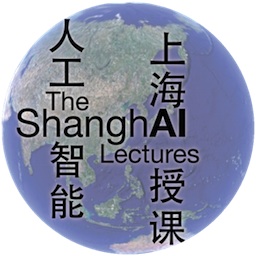
Robohub.org
ShanghAI Lectures 2012: Lecture 3 “Towards a theory of intelligence”

In this lecture Rolf Pfeifer presents some first steps toward a “theory of intelligence”., followed by guest lectures by Vincent C. Müller (Anatolia College, Greece) on computers and cognition, and Alex Waibel (Karlsruhe Institute of Technology, Germany/Carnegie Mellon University, USA) who demonstrates a live lecture translation system.
The ShanghAI Lectures are a videoconference-based lecture series on Embodied Intelligence run by Rolf Pfeifer and organized by me and partners around the world.
Vincent C Müller: Computers Can Do Almost Nothing – Except Cognition (Perhaps)
The basic idea of classical cognitive science and classical AI is that if the brain is a computer then we could just reproduce brain function on different hardware. The assumption that this function (cognition) is computing has been much criticized; I propose to assume it is true and to see what would follow.
Let us take it as definitional that computing is ‘multiply realizable’: Strictly the same computing procedure can be realized on different hardware. (This is true if computing is understood as digital algorithmic procedures, in the sense of Church and Turing.) But in multiple realizations only the syntactic computational properties are retained from one realization to the other, while the physical and semantic properties may or may not be. So, even if the brain is indeed a computer, realizing it in different hardware might not have the desired effects because the hardware-dependent effects are not computational: Just computing can’t even switch on a red light; a computer model of an apple tree will not produce apples. But perhaps cognition is different. Is cognition one the properties that are retained in different realizations?
References:
- Sandberg, Anders (2013), ‘Feasibility of whole brain emulation’, in Vincent C. Müller (ed.), Theory and Philosophy of Artificial Intelligence (SAPERE; Berlin: Springer), 251-64.
- Searle, John R. (1980), ‘Minds, brains and programs’, Behavioral and Brain Sciences, 3, 417-57.
Alex Waibel: Bridging the Language Divide
Related links:
tags: AI Lab, Algorithm AI-Cognition, c-Education-DIY, Carnegie Mellon, cx-Research-Innovation, education, Embodiment, Intelligence, Karlsruhe Institute of Technology, Robotics technology, Rolf Pfeifer, ShanghAI Lectures, ShanghAI Lectures 2012, University of Zurich, video





